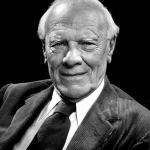My Story of Being “Cancelled”
Don’t misunderstand. I’m telling this story to explain why I think the word “inerrancy” is misleading, especially when conservative American evangelicals use it as a kind of litmus test for who’s “in” and who’s “out” of their club.
I’m going to omit names here; some of you may be able to guess who some of the players were.
Some years ago I received a phone call from the president of the Evangelical Theological Society who was a noted evangelical New Testament scholar. I knew of him but had never met him. He invited me to give a plenary address at the upcoming national meeting of the ETS. I told him I am not a member of the ETS and I don’t believe in biblical inerrancy. He said it didn’t matter, that they have many plenary speakers who are not members and who do not believe in inerrancy. So I agreed to the invitation and put it on my calendar.
The next thing I knew, I received a group email from him to the executive committee of the ETS announcing his invitation and my acceptance. The members apparently did not see my name or email address among theirs and began responding to him with loud disagreement. In the discussion about me that ensued I found out that I am persona non grata among them for a variety of reasons. So at some point I announced my “presence” and contradicting some of their false statements about me and pointed out what the ETS president had said about the flexibility of plenary speakers. They immediately dropped me from the list. The next thing I heard (about this) was the president withdrawing his invitation.
Who were the executive committee members? A veritable Who’s Who of evangelical theologians and biblical scholars. One of them I knew personally; he was my former colleague, a noted evangelical theologian. Some of the others I did not know personally, but new of them. One was a professor at a Texas Baptist seminary. In fact, he was then the provost of that seminary and the incoming president of the ETS.
He and I began a rather lengthy exchange of emails about the term “inerrancy” as it applies to the Bible. At the end of the conversation he as much as admitted that my view of the Bible’s accuracy was the same as his and some other members and leaders of the ETS—given all the qualifications and they make. I told him I just don’t think the words “inerrancy” and the word “inerrant” are helpful in that scholars who use them have to make so many qualifications.
After we agreed about the Bible’s accuracy while disagreeing about the word “inerrant” to describe that I asked him if I could join the ETS. He said no; you have to affirm the WORD “inerrant” to join.
To me that proves that among American evangelical scholars, “biblical inerrancy” is simply a shibboleth for deciding who’s in their club and who’s not. As I have explained here before, I know some leading members of the ETS who define “inerrancy” so flexibly (e.g., as “perfection with respect to purpose”) that I could affirm it IF I thought it was an intellectually honest definition. I have consulted leading evangelical scholars, including the main “icon” of evangelical theology in the late 20th century, who strongly disagree with that flexibility. But they permit it while rejecting those of us who demur from using the word.
So what’s the problem? Why do I get somewhat worked up about this? First, not because I was cancelled. I actually ended up giving two presentations at that annual meeting of the ETS! (But not the plenary address I was invited to give.) Second, because I have come to believe that there is a huge disconnect between the American evangelical scholars who teach biblical inerrancy and the people in the pews who hear the term and have no idea what those scholars really believe it really means. Then come the witch hunts against those of us who do not affirm “biblical inerrancy” BECAUSE it is not an intellectually honest descriptor of what even conservative evangelical scholars mean when they affirm and teach it.
In my opinion, American conservative evangelical biblical and theological scholarship has been riddled with a deep dishonesty (and perhaps more than one) about the Bible. The scholars at major evangelical institutions know that the term “inerrancy” does not mean what most people in the pews (and many in the pulpits) think it means. In many cases they have simply pandered to the people in the pews (and many in the pulpits) seemingly in order to keep a tight hold on their club’s boundaries. Why? Could it be because the fewer of them there are the more status and prestige and influence they have?
*Note: If you choose to comment, make sure your comment is relatively brief (no more than 100 words), on topic, addressed to me, civil and respectful (not hostile or argumentative), and devoid of pictures or links.*














